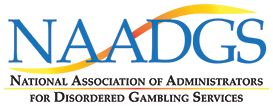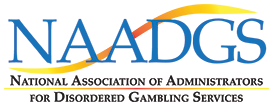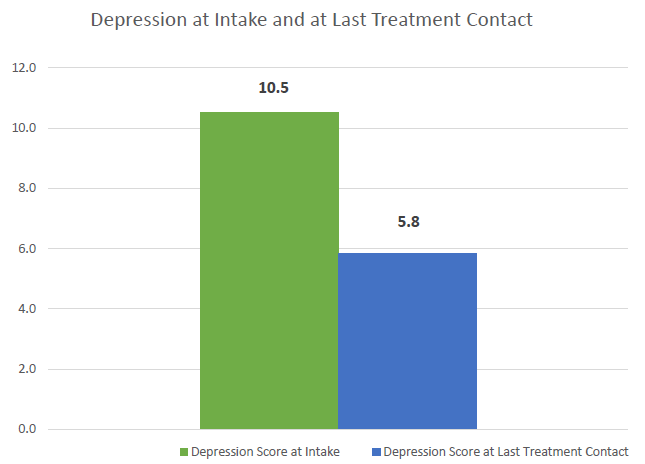Problem gamblers who entered CalGETS outpatient treatment between July 1, 2017 and June 30, 2018 were asked a series of questions to screen for depression at each treatment contact.
During CalGETS treatment, problem gamblers’ average PHQ-9 depression score improved from 10.5 (moderate depression) at intake to 5.8 (mild depression) at last treatment contact.
Researchers consider this change to be a clinically significant improvement in psychological functioning.
Sources – Outpatient Gamblers: CalGETS Fiscal Year 2017-18 dataset, prepared for the California Department of Public Health, Office of Problem Gambling by the University of California Los Angeles Gambling Studies Program. Of the 853 clients who had PHQ-9 scores at intake, 769 had scores at both intake and at last treatment session. Clinically Significant Improvement: Jacobson, N. S., & Truax, P. (1991). Clinical significance: a statistical approach to defining meaningful change in psychotherapy research. Journal of consulting and clinical psychology, 59(1), 12.
In California, problem gamblers can receive no-cost treatment through CalGETS. If you or someone you know has a gambling problem, call 1-800-GAMBLER.


